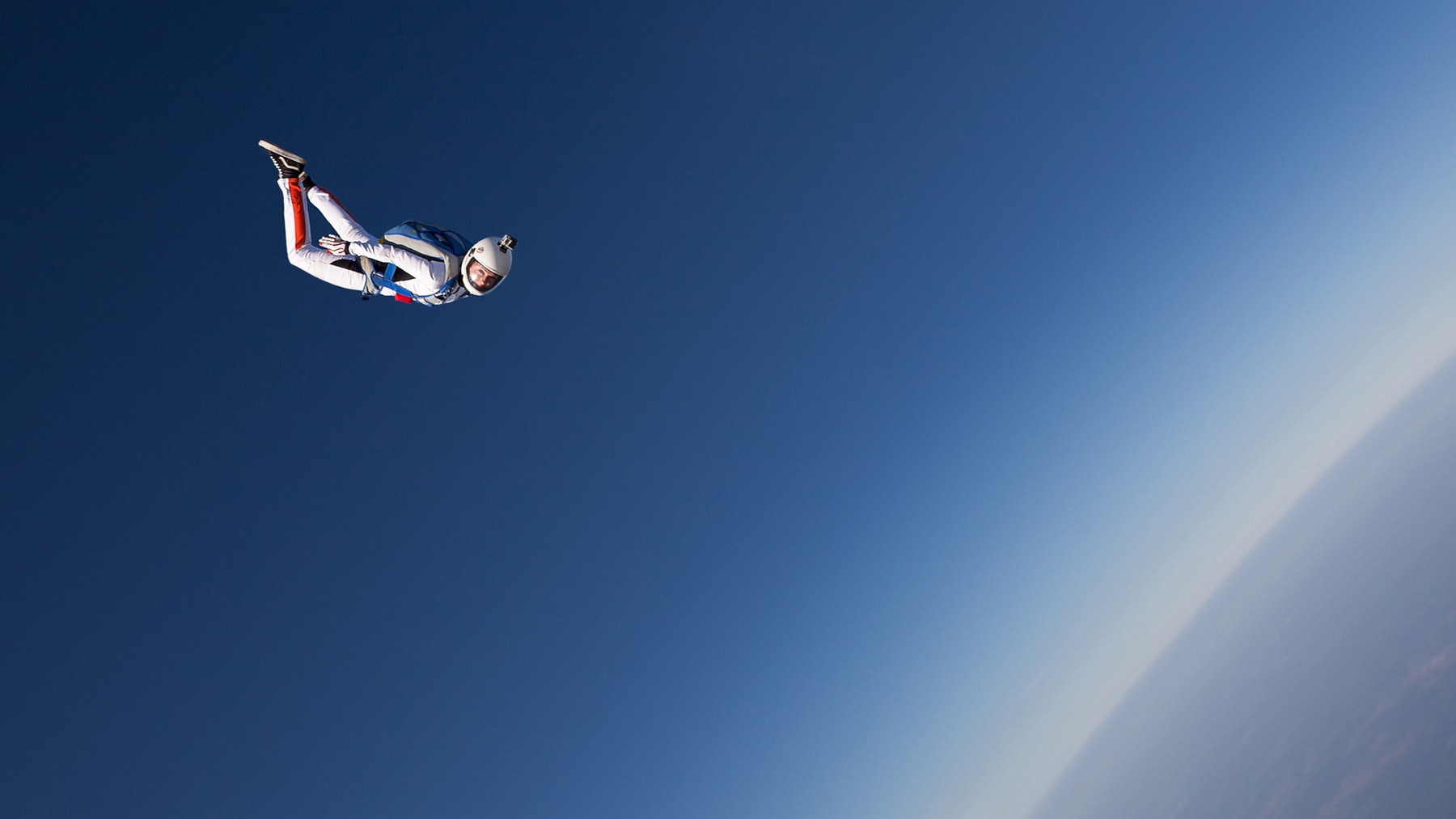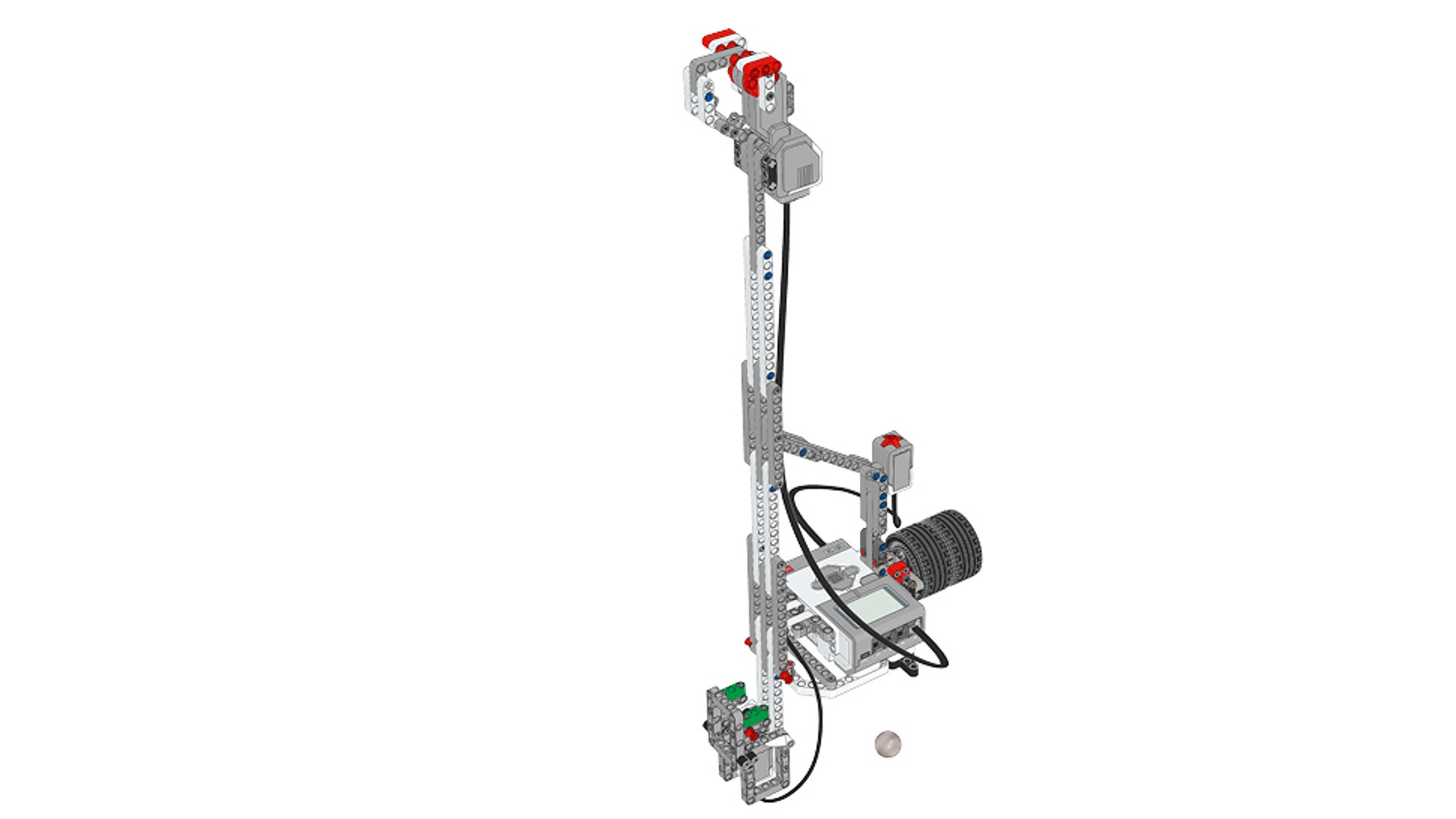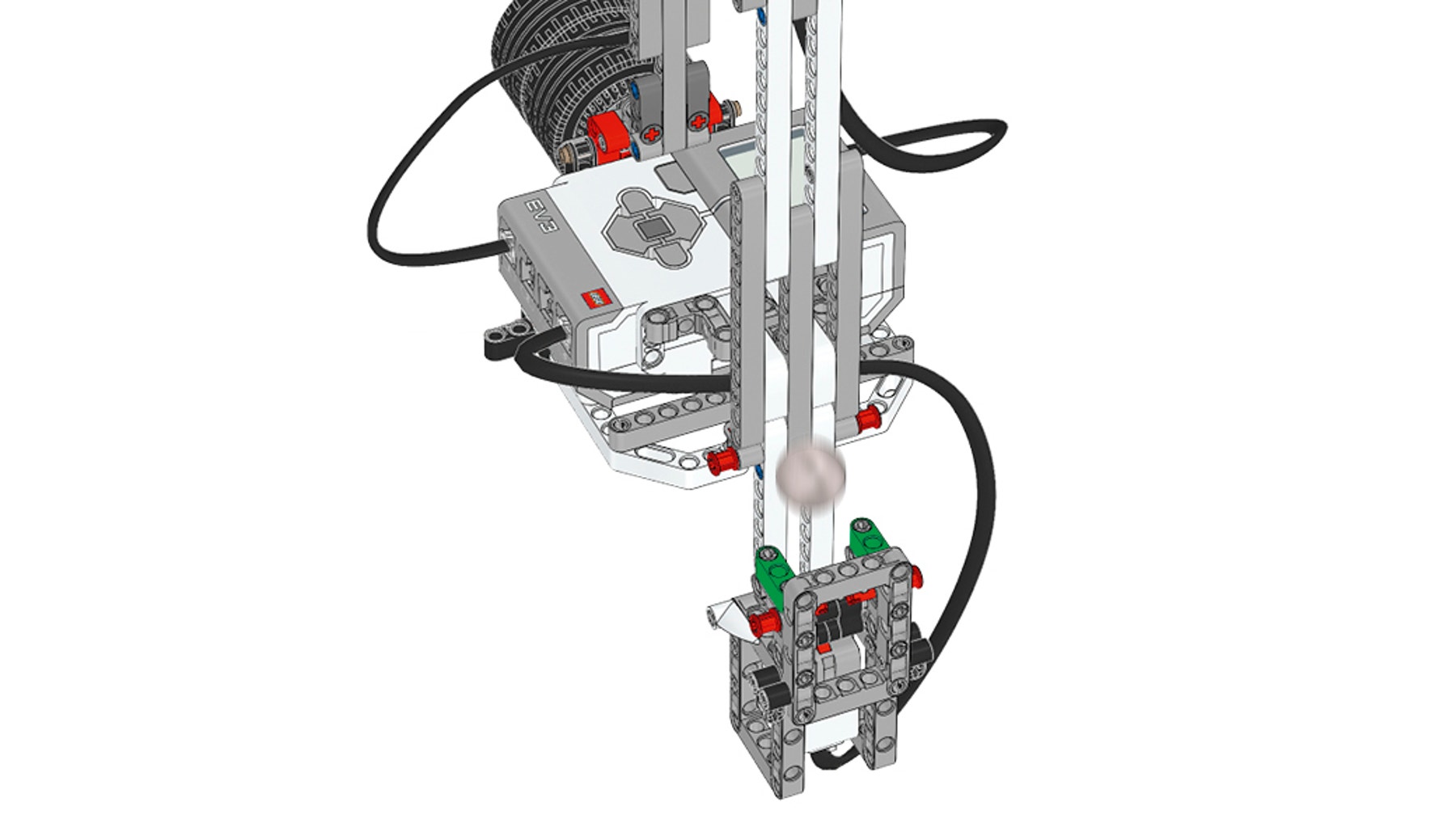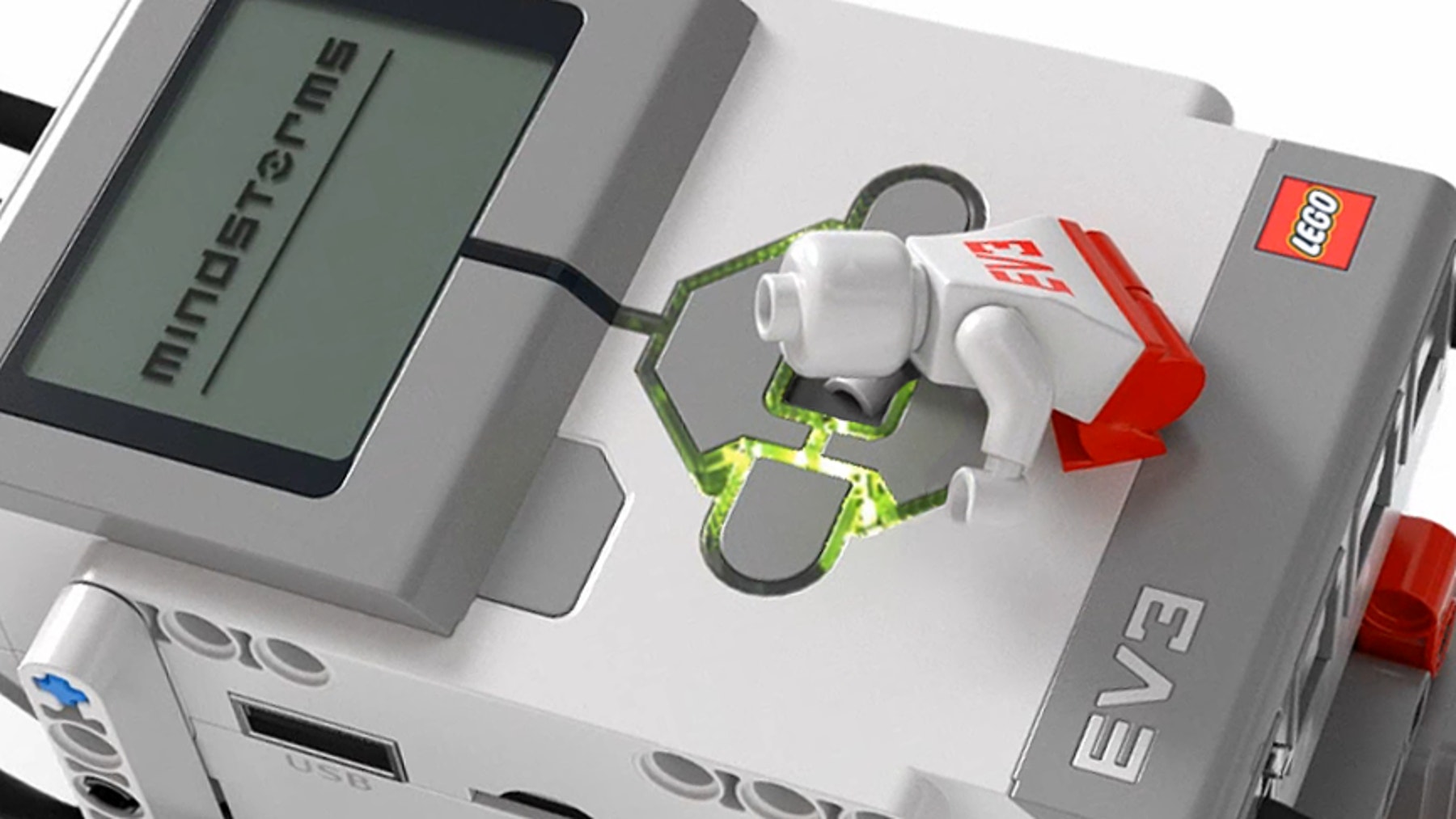Free Falling
What’s a *free fall*?

Free fall describes the acceleration of an object due exclusively to gravity. People who jump out of an aeroplane are slowed by aerodynamic resistance as they fall. A true free fall would only be possible in a vacuum in which no forces other than gravity can act.
Is it true that in a vacuum, a hippopotamus falls at precisely the same rate as an earthworm?
Build this *Drop Tower*.

You’ll use it to experimentally determine the gravitational constant.
Do a test run.


Place the model on a solid and level surface. Run the program and wait until the Touch Sensor is shown on the Display. Place the ball in the ball arm and press the Touch Sensor on the back of the Drop Tower to start a drop experiment.
Does the ball land on the Touch Sensor at the bottom of the Drop Tower? Are a big smile and the fall time displayed?
Record your results.

In a testing table, record the experiment number and fall time. Make sure you leave enough space to add more columns for further calculations.
Running the Experiment
Keep the following tips in mind as you run your experiment:
- Ensure that the tower isn’t shaking when you release the ball.
- The Touch Sensor can also be held and used as a manual remote control if it’s needed. This allows you to avoid shaking the tower, which might lead to failed experiments.
- If the experiment was successful, the fall time will be shown on the Display.
- Perform the experiment at least three times. Use the average value to ensure the most reliable results.
Summarise your results.

Use the average fall time to calculate the average velocity of the falling ball and the acceleration of gravity. If you are having difficulty, check the ‘Hint’ for the formulas.
What aspect of the ball’s motion changed and what stayed constant?
Velocity Formula
Use the formula below to calculate the average velocity. The displacement is the height of the Drop Tower, which is 50 cm.
v = d / t
Where:
v = velocity (m/s)
d = displacement (m)
t = time (s)
Law of Falling Bodies
Use the formula below to calculate the gravitational constant. The displacement is the height of the Drop Tower, which is 50 cm.
d = ½ × g × t²
Where:
d = displacement (m)
g = gravitational acceleration (m/s²)
t = time (s)
How did you do?

What did you do well? Is there anything that you could have done better?
Nice! Now you know how objects accelerate in free fall. Let’s ramp up for the final lesson!